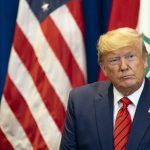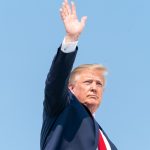President Trump recently took a proverbial sledgehammer to Ukrainian President Volodymyr Zelenskyy, branding him a “dictator without elections” who, according to Trump, successfully bamboozled the United States into pouring billions into an unwinnable war. Trump’s explosive remarks on Truth Social insisted that Zelenskyy, who rose to fame as a relatively mediocre comedian, managed to convince the U.S. to cough up a staggering $350 billion. The implication here is that Zelenskyy is somehow not only mismanaging his own country but is also overseeing a financial bonanza that no one really asked for.
His criticisms of Zelenskyy did not stop there. Trump pointed the finger at European leaders, suggesting their contributions to the Ukrainian cause pale in comparison to the numerous dollops of U.S. cash. One has to wonder why America remains the first and last line of defense for a situation both the leaders of Europe and Zelenskyy seem unable to effectively manage. As the conflict drags into its third year, one can’t help but ponder if Zelenskyy is more focused on keeping the “gravy train” rolling rather than negotiating peace. Perhaps comedians have a knack for punchlines rather than problem-solving.
Trump blasts Zelenskyy as ‘dictator’ who duped U.S. into sending aidhttps://t.co/SPXyhRVrYI pic.twitter.com/9nBU4r2cge
— The Washington Times (@WashTimes) February 20, 2025
In a twist that can only be described as a rollercoaster of diplomacy, the timing of Trump’s tirade corresponds with U.S. and Russian officials sitting down for talks in Saudi Arabia aimed at winding down the hostilities. It’s curious to witness Zelenskyy claiming exclusion from those discussions, presenting a rather interesting paradox: he’s demanding support while also being left out of key negotiations. One must be careful, though; in a political landscape as murky as this one, it’s easy to get mired in “who’s to blame” scenarios.
To further complicate matters, Trump’s $350 billion figure—sourced from who-knows-where—was contested by the inspector general overseeing the funding, who pegged the total closer to $183 billion by the end of 2024. This discrepancy begs the question of whether the inflated number was part of a clever narrative or just a miscalculation. The apparent inconsistency is enough to raise eyebrows, but when has accuracy ever been a top priority in political polemics?
Of course, Trump’s comments didn’t go unnoticed. Former National Security Adviser John R. Bolton, now a Trump critic, deemed the remarks a threat to U.S. security on social media. Bolton opines that America’s backing of Ukraine is tied to global strength, as if that argument wasn’t recycled enough during the last few decades. Meanwhile, in response to Trump’s assertions of Ukrainian accountability for the war, Zelenskyy claimed that the former president is caught in a “circle of disinformation.” Given the state of global information battles, it’s more like a circus than any circle one would want to be in.
As the political wrangling continues to escalate, the landscape remains cluttered with conflicting narratives and hyperbole. The ongoing feud between Trump and Zelenskyy illustrates how foreign policy often resembles less of a chess match and more of a game of musical chairs—where some countries are left behind and others are left asking if the music was ever intended for them in the first place.




